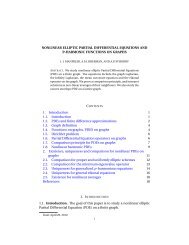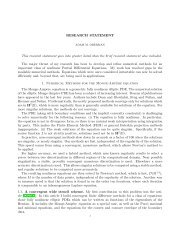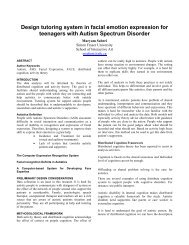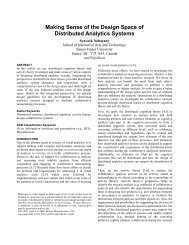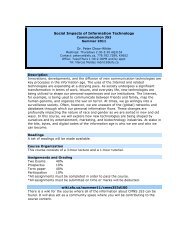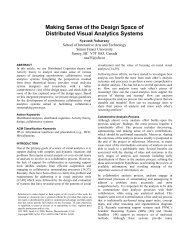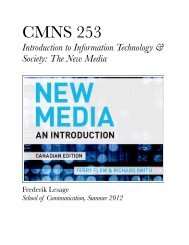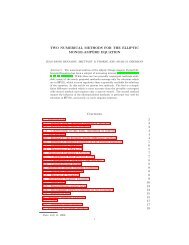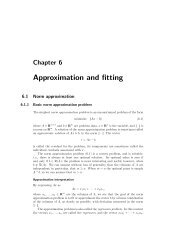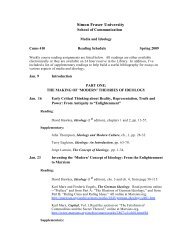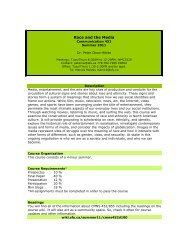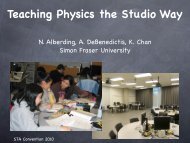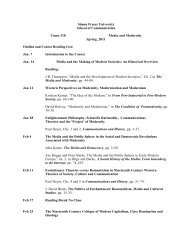CMNS 253 Syllabus - SFU Wiki
CMNS 253 Syllabus - SFU Wiki
CMNS 253 Syllabus - SFU Wiki
Create successful ePaper yourself
Turn your PDF publications into a flip-book with our unique Google optimized e-Paper software.
5. Copyright law seeks to make distinctions between private ownership and public use,though these have often been difficult to sustain in practice. What three areas of distinctionhave been particularly contentious?6. In the case involving the US Communications Decency Act (1996), Mike Godwin,counsel for the Electronic Frontier Foundation (EFF), argued (1998: 23): ‘Give people a modemand a computer and access to the Net, and it’s far more likely that they’ll do good thanotherwise’. How is this view characteristic of cyber-libertarian perspectives and why do youthink such views are not now articulated as strongly as they once were?7. Copyright law is derived from the principle of balanced interests. What are these interestsand in what ways have new media and the Internet brought challenges to maintaining suchbalance?CLASS ACTIVITIES1. Take a look at the CRTC web site (www.crtc.gc.ca), noting the recent decisions relating tonew media. Pick a recent decision that has general applicability (e.g., Net Neutrality, or ISPs ascarriers vs broadcasters) and consider how it fits with the concepts and analysis in thischapter. Does the approach of the commission or the tone of the decisions match with theviews of this text? Does it match your own views?2. Consider the implications of making Internet access either a human right or afundamental right of Canadians. Are these similar to the universal service provisions adoptedin Canada (and elsewhere) to ensure telephone service was made widely available outside ofurban areas? If you or any of your fellow students are from rural or remote areas in yourclass, speak about the challenges of getting Internet access at home.Chapter 10: ConclusionQUESTIONS TO CONSIDER1. What are some of the negative aspects of new media? What aspects of human relationsdoes it disrupt that we would not necessarily wish to have disrupted?2. How can new media be used to go beyond mere entertainment to affecting real change?How can new media—and social software in particular—be used professionally andresponsibly, rather than frivolously and hurtfully?



